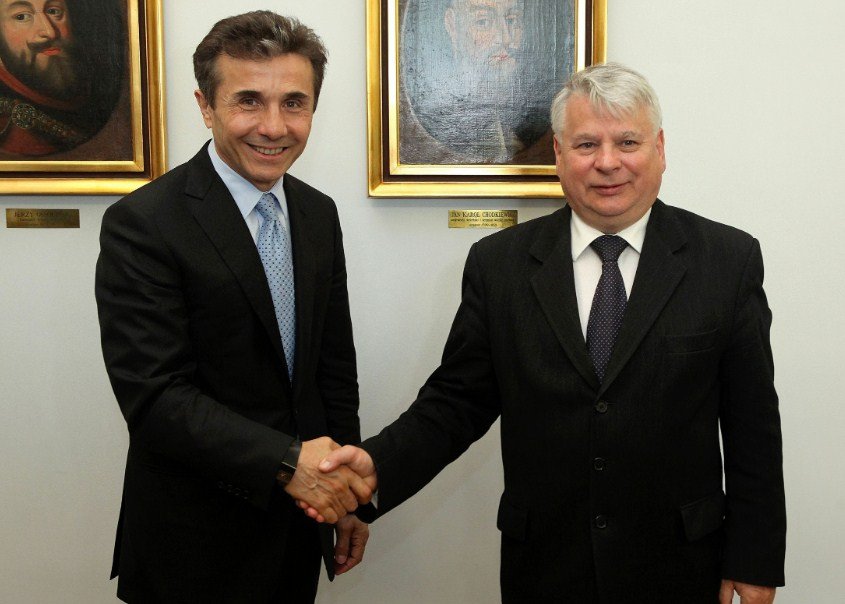Who is Bidzina Ivanishvili?
Bidzina Ivanishvili is a Georgian businessman and politician who founded the ruling Georgian Dream (GD) party in 2011. He is the richest person in Georgia, with an estimated net worth of $4.5 billion, according to Forbes. He made his fortune in Russia in the 1990s, investing in various sectors such as banking, metals, real estate, pharmaceuticals and agriculture.
Ivanishvili served as the prime minister of Georgia from 2012 to 2013, after his party won the parliamentary elections against the United National Movement (UNM) of former president Mikheil Saakashvili. He then resigned from his post and from the party leadership, saying he had fulfilled his mission and would focus on his philanthropic activities. He also said he would return to politics only in case of an emergency.

Why did he return to politics?
On December 30, 2023, Ivanishvili announced his comeback to politics, saying he had accepted the request of Prime Minister George Kvirikashvili to become the honorary chair of the GD party. He said he made this decision because of the “serious challenges” facing the country and the need to “strengthen the party and the government”.
Ivanishvili’s return to politics came amid growing discontent among some members of the GD party, who accused Kvirikashvili of being too soft on the opposition and too close to the West. Some also criticized the government’s handling of the economy, the pandemic, and the relations with Russia.
Ivanishvili’s comeback also came ahead of the presidential elections, scheduled for October 2024, which will be the last direct vote for the head of state, as Georgia is transitioning to a parliamentary system. Ivanishvili said he would not run for president, but would support the GD candidate. He also said he would not interfere with the work of the government, but would offer his advice and guidance.
What are the implications of his return to politics?
Ivanishvili’s return to politics has sparked mixed reactions in Georgia and abroad. His supporters welcomed his decision, saying he would bring stability and unity to the ruling party and the country. They also praised his achievements in reducing poverty, improving infrastructure, and advancing the country’s Euro-Atlantic integration.
His critics, however, denounced his decision, saying he would undermine the democratic institutions and the rule of law in Georgia. They also accused him of being a puppet of Russia, where he still has business interests and connections. They claimed he would try to steer Georgia away from the EU and NATO, and to appease Moscow, which occupies 20 percent of Georgian territory in the breakaway regions of Abkhazia and South Ossetia.
Ivanishvili’s return to politics also raised questions about the future of the opposition, which has been weakened and divided since the 2024 parliamentary elections, which they claimed were rigged. The UNM, led by Saakashvili, who lives in exile, has been calling for mass protests and boycotts of the parliament and the presidential elections. Other opposition parties have been trying to negotiate with the government and the international community for electoral reforms and dialogue.
How will he shape Georgia’s politics?
Ivanishvili’s return to politics will likely have a significant impact on Georgia’s political landscape, as he is widely seen as the most influential and powerful figure in the country. He will have the final say on the GD’s policies, strategies, and candidates, as well as on the government’s actions and decisions. He will also have the ability to mobilize his vast financial and media resources, as well as his loyal supporters, to advance his agenda and interests.
Ivanishvili’s return to politics will also pose a challenge to the opposition, which will have to find a way to counter his dominance and appeal. The opposition will have to present a clear and credible alternative to the GD, and to address the needs and concerns of the Georgian people, who are facing economic and social hardships, as well as security and geopolitical threats.
Ivanishvili’s return to politics will also affect Georgia’s relations with its external partners, especially the EU and NATO, which have been supporting the country’s democratic and economic development, as well as its territorial integrity and sovereignty. Ivanishvili will have to balance his pro-Western rhetoric with his pro-Russian actions, and to reassure his allies that he is committed to Georgia’s Euro-Atlantic aspirations, despite the pressure and influence of Moscow.
